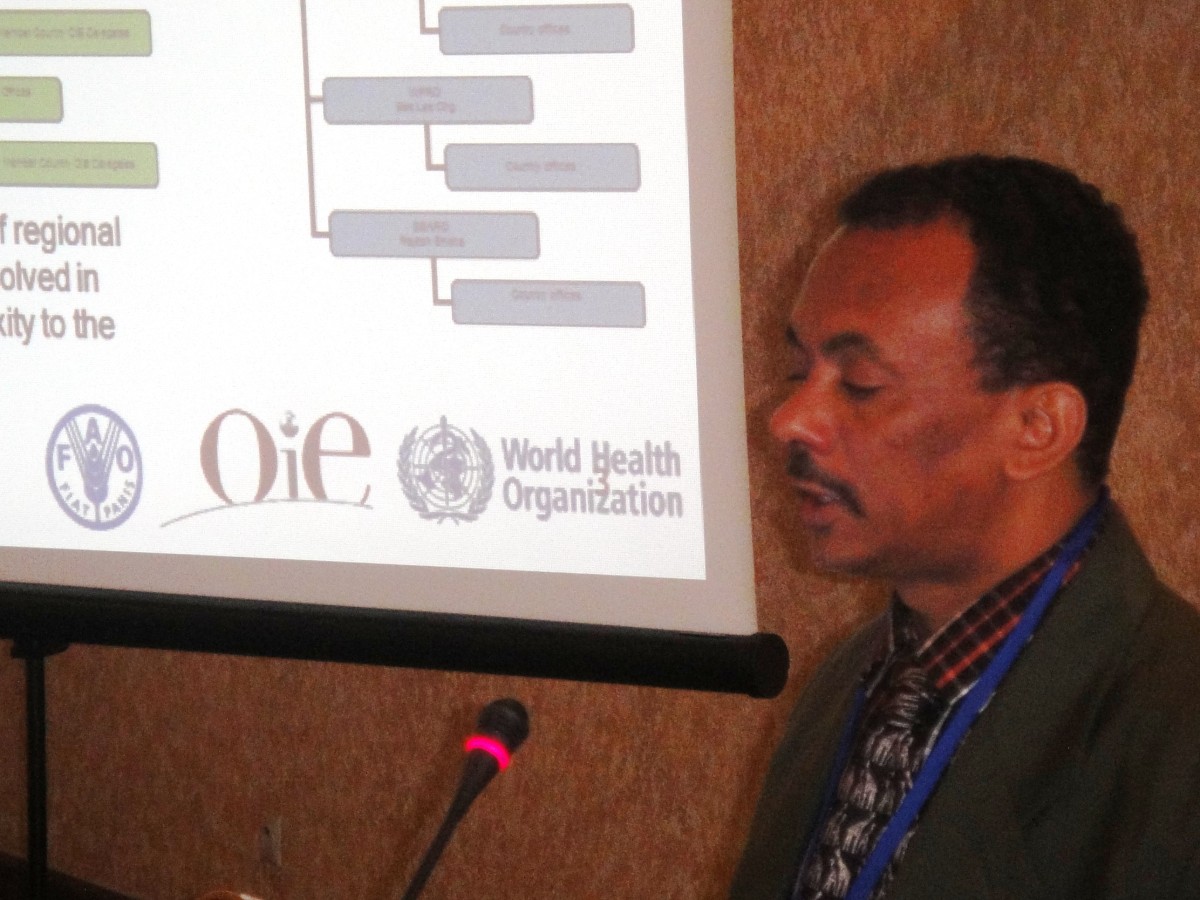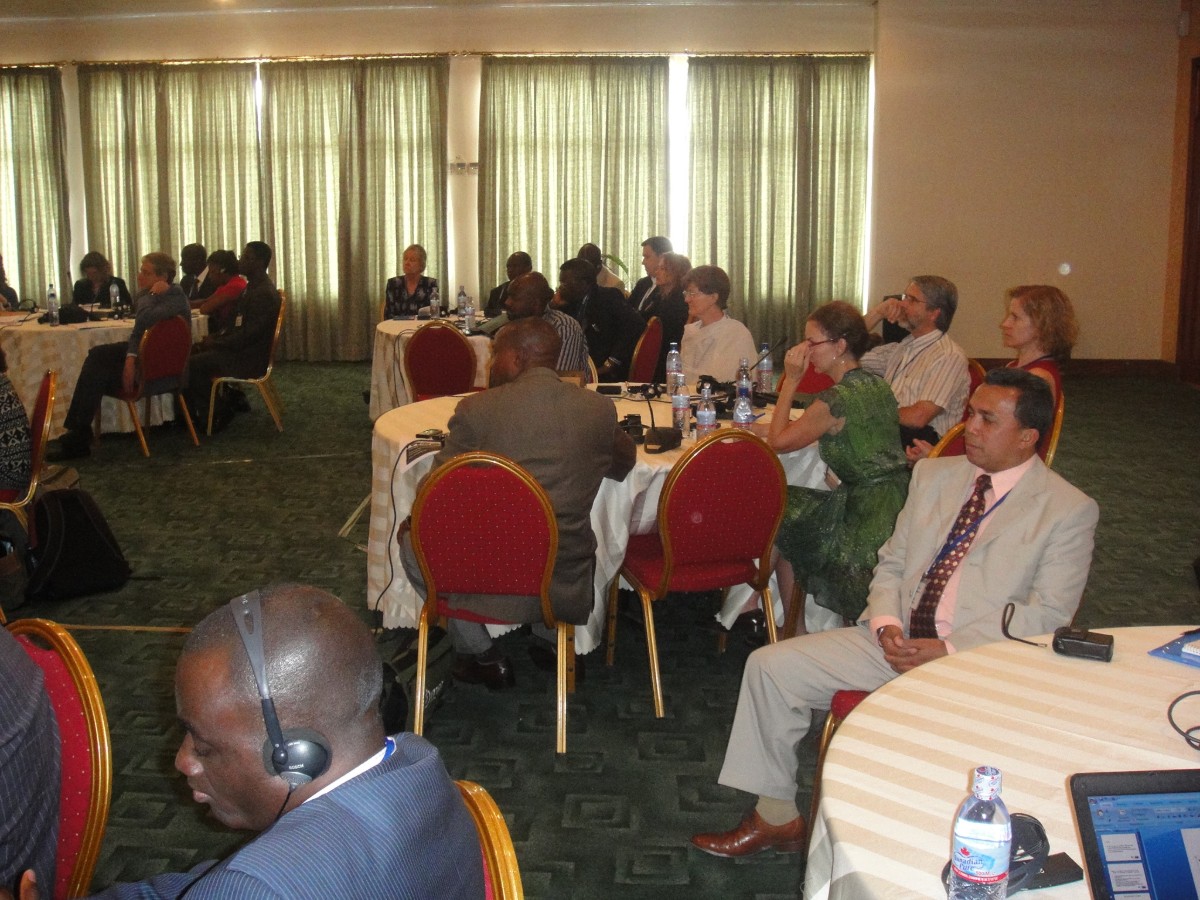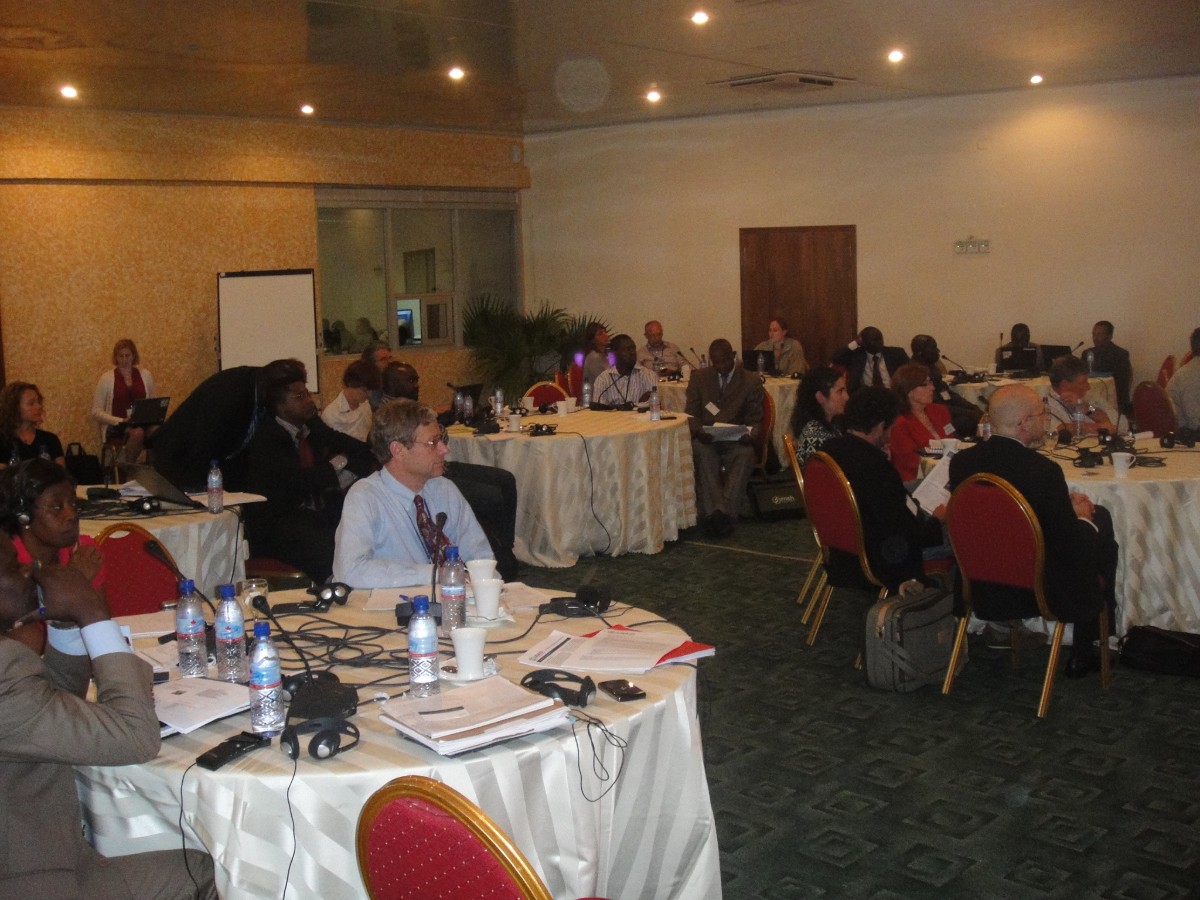Kampala and Kinshasa were host to the official launch of the USAID-funded “Emerging Pandemic Threats” programme on April 27th and 30th respectively. This five-year, very comprehensive programme, worth USD 500 million, is intended to address several aspects related to human health threats from emerging potentially pandemic pathogens, and it is made up of five individual, but closely interconnected projects : PREDICT, PREPARE, PREVENT, RESPOND, and IDENTIFY. It endeavours to put the One World, One Health principles to practice.
Picture (c) P. Bastiaensen (oie) 2010
Picture (c) P. Bastiaensen (oie) 2010
Indeed, the speed with which diseases of animal origin that pose a risk to humans – including HIV/AIDS, severe acute respiratory syndrome (SARS), H5N1 avian influenza, and the 2009 H1N1 influenza virus – can emerge and spread across the increasingly interconnected globe presents enormous public health, economic, and development concerns. This threat underscores the need for a comprehensive, proactive approach that draws on a wide array of technical resources to build sound detection and response capacity. USAID’s EPT programme will focus resources on detecting dangerous pathogens at an early stage, building appropriate laboratory capacity to support surveillance, responding in an appropriate and timely manner, strengthening national and local response capacities, and educating at-risk populations on how to prevent exposure to these dangerous pathogens. The EPT programme is being managed by USAID with technical support from the U.S. Centers for Disease Control and Prevention and the United States Department of Agriculture.
The EPT programme is a comprehensive and interconnected intervention package that will be implemented through five projects, each requiring specific technical skill sets, but which will work harmoniously together to provide seamless technical assistance and expertise in the field. The five projects in the EPT programme are as follows:
Within this framework, the OIE will assist selected veterinary laboratories inside and outside the central Africa region (the Congo river basin being one of the hot spots) in developing expertise and capacity in order to provide specialised (reference) diagnostic services to the national veterinary services and public health services in the countries covered by the project, i.e. Cameroon, Central African Republic, Democratic Republic of Congo, Equatorial Guinea, Gabon, Republic of Congo, Rwanda, Tanzania, and Uganda. The programme will be coordinated by the OIE Scientific and Technical Department in Paris and the OIE Sub-Regional Representation for Southern Africa in Gaborone.
Other geographic hot spots are the Amazon river basin in South America, the Ganges plains in South Asia, and the Mekong river delta in South-East Asia
All pictures (c) P. Bastiaensen (oie) 2010



